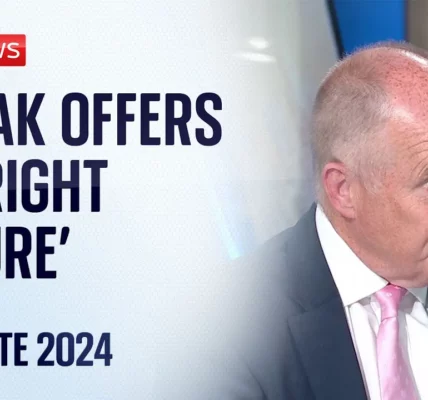KY Bok: A Leadership Candidate for the Conservative Party

In this article, we delve into the candidacy of KY Bok, the Shadow Housing and Community Secretary, exploring his views on critical issues affecting the Conservative Party and the broader political landscape. From his perspectives on Israel to immigration policies, this piece aims to provide a comprehensive understanding of his political stance and the implications for the party and the nation.
Introduction
KY Bok, a prominent figure in the Conservative Party, presents a unique blend of conviction and clarity in his political discourse. His recent statements regarding international relations, particularly concerning Israel, as well as internal party dynamics and immigration policies, have sparked significant discussion. This article aims to unpack Bok’s viewpoints while analyzing the context and potential ramifications of his leadership aspirations.
Bok’s Views on Israel and International Relations
As a potential leader of the Conservative Party, KY Bok emphasizes the importance of strong international alliances, particularly with Israel. His statements reflect a commitment to recognizing Israel’s right to self-defense amidst ongoing regional tensions.
Support for Israel
Bok has expressed admiration for Israeli Prime Minister Netanyahu, describing Israel’s military actions as demonstrating “moral clarity.” He argues that:
- Israel has the right to defend itself against terrorist organizations like Hezbollah and Hamas.
- Military actions taken by Israel are justified given its precarious geopolitical situation.
- Efforts to protect civilian lives during military operations should be acknowledged.
Implications for UK Foreign Policy
Bok’s stance suggests a potential shift in UK foreign policy, advocating a more robust support for Israel. This could lead to:
- A reaffirmation of defense alliances with Israel.
- Increased diplomatic engagement in Middle Eastern affairs.
- Challenges in balancing relationships with other nations in the region.
Addressing Domestic Challenges: Immigration and Public Trust
In the interview, Bok reflects on the challenges facing the Conservative Party, particularly regarding public perception and immigration policies. His acknowledgment of past failures to communicate party values effectively is notable.
Immigration Policies
Bok’s remarks on immigration highlight a desire for a more discerning approach. He emphasizes that:
- Immigrants should demonstrate a commitment to the UK’s values and culture.
- There is a call for clearer expectations from immigrants regarding their integration into British society.
- Past policies have failed to resonate with the electorate, leading to a loss of trust.
Rebuilding Public Trust
Bok argues that regaining public trust is paramount. He proposes that the Conservative Party should:
- Communicate a clear and consistent message regarding party values.
- Focus on delivering tangible results that align with public expectations.
- Engage with constituents to understand their concerns and adapt policies accordingly.
Challenges and Controversies
As with any political figure, Bok has faced challenges and controversies. His direct communication style has drawn both support and criticism.
Public Perception
Bok’s forthrightness has led to a mixed public perception. Some commend his clarity, while others find his statements polarizing.
Handling Criticism
Bok’s approach to criticism has been to engage directly with detractors, emphasizing his belief in open discourse. He has stated that:
- It’s essential for politicians to stand their ground against unjust attacks.
- Constructive criticism is valuable, but personal attacks should not deter political discourse.
Conclusion
KY Bok’s candidacy for the Conservative Party leadership encapsulates a blend of traditional values and a demand for accountability. His views on Israel, immigration, and public trust reflect a commitment to strengthening the party’s position both domestically and internationally. As he navigates the political landscape, his ability to communicate effectively and resonate with the electorate will be critical. Engaging with these themes further, we invite readers to explore additional articles on political leadership and party dynamics.
“`




